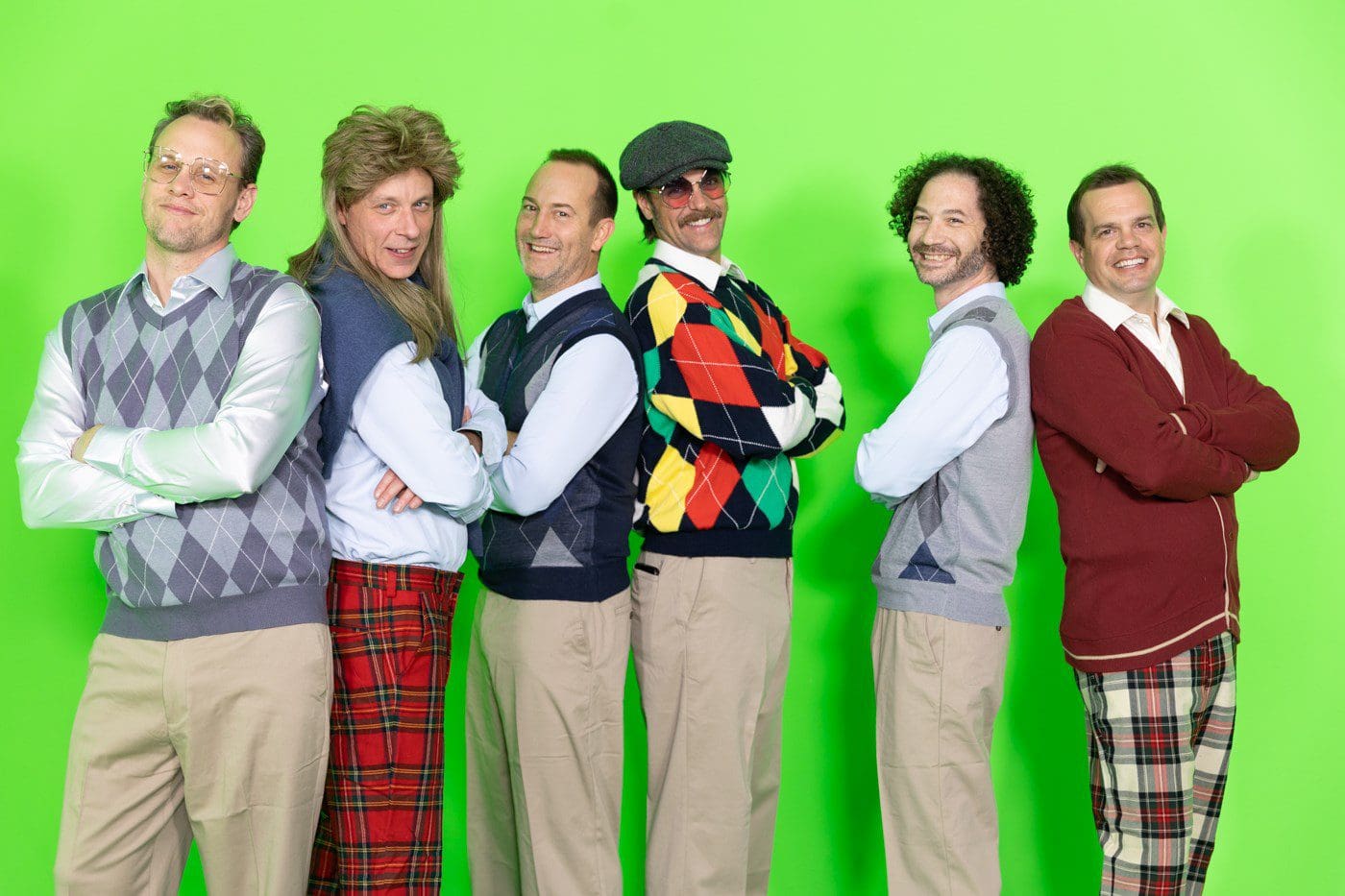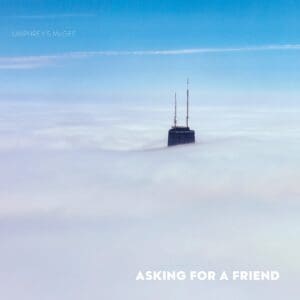
The ‘Round The Campfire Interview Series is Pop Break’s preview series, curated by Lead Music Writer Andrew Howie, for Summer Camp 2022.
Umphrey’s McGee: it’s a name that sticks with you. With almost a quarter-century under their belts, they’ve grown into a one of the pillars of the jam band community. They’ve also been a major part of Summer Camp since the very early years, along with co-headliners moe. With the music season about to kick off in a big way, I recently spoke with bassist Ryan Stasik about the history of the festival, playing with multiple groups, and their new album, Asking For a Friend.
Andrew Howie: I’m struck by this line in the press release for the new album: ‘…the best and most emotionally direct album Umphrey’s McGee have ever made.’ Can you elaborate on that and why you think it ended up having that effect?
Ryan Stasik: I think the most obvious answer is we had a global pandemic; it shut down our industry and sent us home, and really put a lot of our lives in perspective. Whether it was family, relationships, the band, music, traveling, all of that changed so drastically, and I think it took a different toll on different people. There were a lot of positive aspects, there were a lot of negative aspects, ; we all kind of acclimated or adjusted differently to what was so quickly thrown at us. I think that’s probably why it’s a more emotional album, because it’s about what we just went through.
AH: What can you tell me about how the music itself came together; was it business as usual or were there adjustments that had to be made?
RS: So usually, we get the drum takes from Kris, our gifted and talented drummer, and I’m usually trying to nail the bass parts with him. We finish our stuff on the front end rather quickly. But then because of covid, it put a fire under my ass to go out, get Ableton, get a console, get my own working studio going. I was able to get the bass tracks out and actually work from home, which was a lifesaver because I needed a little bit of a routine, what with not being on tour or allowed to go anywhere. I became extremely productive and was able to do, I think, the entire instrumental record (You Walked Up Shaking In Your Boots But You Stood Tall and Left a Raging Bull) in my studio; some parts were done away from the entire band.
When we were fortunate enough to get together safely and play, either at Jake’s studio or at ECTO, where we store our gear in Chicago, we were able to play live streams, but we were also able to record music and just make the most of our time. So it was done all over the place. The other guys will probably have a more in-depth answer to the question, because the drums get finished on the front end, and the guitars and vocals and percussion is kind of at the end. I was done early and did more of the waiting game, which is always interesting too. It allows you to listen to your parts over time and see if you’re happy with them or whether you want to go back and make any changes.
AH: Speaking of new material, tell me what’s up with Death Kings and Doom Flamingo, what’s going on with them?
RS: So Death Kings released a 30-minute, 8-track metal record that was written entirely apart from each other. I did all my parts in my studio at home and Mike (Gantzer, of Aqueous) and Mike (Carubba, formerly of Turkuaz) did their parts up in Buffalo. So that came together quickly but completely because of and during the lockdown. Doom Flamingo also put out an EP, but we have a full-length record that we’re finishing the mixes for now that we’re hoping to release by summer or fall at the latest.
AH: Do you find that you approach music differently when you’re playing with one group vs. another?
RS: The approach is always the same, it’s more just adjusting to the style of music and communicating with the group. Death Kings is metal, so it’s much more of me getting my anger and aggression out and getting a little more wild with the attitude, where I feel like Doom Flamingo is more of that sexual outlet with synthwave and pop sound. I always feel like with Umphrey’s we try to have organized chaos through improvisational self-indulgent rock n’ roll.
AH: So you’re playing Summer Camp next month with all three groups, but you’ve obviously been involved in the festival with Umphrey’s McGee since the very early years. What is it about Summer Camp in particular that makes it so special for you?
RS: It feels like home to me. We’ve been doing it for so long; Ian and everybody who puts on the festival is so gracious and hospitable to us. I’ve been in Charleston for ten years now, but I spent twelve years in Chicago, and it felt like home away from home. It’s been amazing watching it grow, all the different acts that have been there, carting around and seeing most of them, and the hangs! I’ve made genuine friendships with the workers, the staff, especially the bartenders, and everybody who’s there. It feels like family, and I think that’s what’s important.
AH: Your sunrise kickball games were legendary. How did those begin?
RS: Obviously I didn’t invent kickball, but I did witness some seriously intense, adventurous and hilarious sunrise kickball games back in High Sierra in the early 2000s when we were playing that festival pretty regularly. I just decided to bring it back to the Midwest and put a little flair on it. I did it for about ten years with a retiring record of 9-1, so I kind of dropped the mic and put my cleats away as the GOAT. But you know, Tom Brady came back, so we’ll see what happens this year, weather permitting. I’m a man who can survive on minimal sleep and I’m hyper-competitive, so maybe I’ll don the golden cleats for one last victory.
AH: Have the songs on this new album been played for many crowds or will 420 Fest and Summer Camp be getting a heaping helping of brand new live tunes?
RS: So we’ve been releasing a single every two weeks leading up to the record: “I Don’t Know What I Want,” “So Much,” and “Small Strides.” Those are three songs that have been presented to the public. We’ve only performed I Don’t Know What I Want, but there are 14 tracks on the record. I was actually really pushing for putting everyone of them on there; we had a conversation between the six of us, and it was ‘pick your least favorite three tracks,’ and nobody could agree on any of them. For me, if all the music is written at the same time and under the same emotions and the songs fit together, I don’t like to shelve any of them, because then I feel like some of those might have really hit home with the fans.
So it’s a lot of information but we try to get it out there. Otherwise it gets put on a B-side, and it maybe doesn’t get the attention or love it deserves. Sometimes they don’t even get learned or played or performed. I wanted all of this to be out there. We’ve been sitting on most of the material to play it live, which is always great too because that puts a fire under our ass, and now we have 14 new compositions to play live and see how we end up jamming them or opening them up. Always fun for us as well.
AH: You mentioned how you jam songs or open them up; what can you tell me about how Umphrey’s McGees handle improvisation as a sextet on stage?
RS: Obviously, doing it for almost 25 years now, we definitely have a better understanding of where people are headed and what they’re thinking; it’s almost telepathic. That said, we do have cues as well; we use a lot of baseball cues, hand cues, eye cues, foot cues, to kind of edit ourselves a little. What can sometimes be a problem for a band like us where there are six members is just that: there are six of us. If you’re in a room all talking at the same time, it can become chaos and it gets quite discombobulated.
It’s important to edit and break it up and listen. We do a lot of stopping and telling each other to lay out, and I think that’s very impactful as well; what you’re not playing is very important. When you’re sitting back and listening to something, it has much more intent and impact on the music itself, so we have a slew of cues and mics that allow us to deviate from the setlist if someone is feeling something, you know, ‘I’m really in the moment here, let’s try this.’ Setlists are never really written in stone. We can also really interact with the crowd and feel where the room is pushing us and maybe go that way.
AH: So what’s on deck as far as tour plans coming up?
RS: We’re playing SweetWater 420 Fest this weekend, and then Summer Camp, and right after Summer Camp its guns blazing. It will be the first time things will kind of feel like we’re getting back to normal, where we’re playing a lot of shows. Summertime baby.
AH: I can hear the excitement in your voice.
RS: I think I speak for all the touring musicians here – we’re ready to get out there and make people smile and dance.


